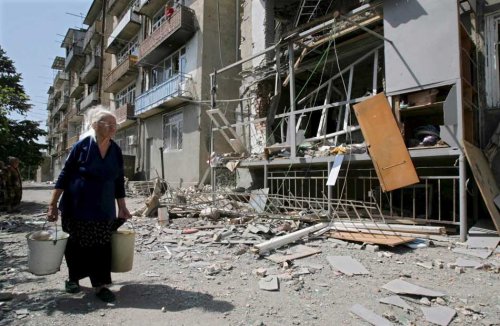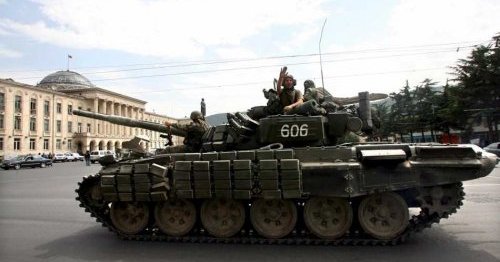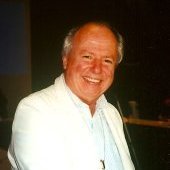The Russian troops moved quickly in support of the South Ossetians, many of whom had been given Russian passports. There was brief but violent fighting. There was a refugee flow of Georgians living in South Ossetia toward Georgia and of South Ossetians toward North Ossetia. As of this writing (17 August 2008), there is a ceasefire mediated by France, the current President of the EU and by the Organization for Security and Cooperation in Europe (OSCE) whose President is Finland. However, there are Russian troops present, a good number of which have gone beyond the South Ossetia frontier to what has always been uncontestedly Georgia. International tensions between the USA, Europe and Russia are at a level not seen since the end of the Cold War in 1990.
The fighting in South Ossetia has also revived violence in the larger province of Georgia considering itself independent, Abkhazia. A small part of Abkhazia, the upper Kodori Gorge, had been occupied since 2006 by Georgian troops. The Georgian troops have now been dislodged by Russian and Abkhazian troops, and so today, all of Abkhazia is under the control of the Abkhaz Government. The Abkhaz Government has indicated its support for the South Ossetians. Thus a conflict which in OSCE terminology, was considered ‘frozen’, that is, no settlement, the issues unresolved but no fighting, has started to melt.
the period since 1994 has not been intellectually creative in terms of political structures in the Caucasus
I learned about Georgian, Abkhaz and South Ossetian politics in a hurry, but by accident. At the UN human rights Sub-Commission meeting in Geneva in August 1992, a friend asked me if I would look after three men who were there with him for the session as he had to leave town. I said “yes”, and he introduced me to Mr Guram Gumba, a representative of the Government of Abkhazia, and to Mr C. Abumucshnov and Mr M. Udugov, both members of the Parliament of the Chechen Republic. I had never heard of Abkhazia or of Chechenya, but I said that the next day, we could have coffee together, and they could tell me about their countries.
The next day, however, I found three very excited men as Georgian troops had moved into the Abkhaz capital Sukumi; the Abkhaz government had fled and disintegrated. Mr Gumba, as Plenipotentiary of the Supreme Soviet of Abkhazia and chairman of the Foreign Affairs Committee of the Parliament of the Caucasian Confederation was the highest official outside the country and the only person able to negotiate.
Thus, for the next three weeks, I worked with him in meeting officials of the UN, the International Committee of the Red Cross, and diplomats who wanted to understand what was going on. An Abkhaz graduate student who was writing on Abkhaz history at a Dutch university joined us and filled me in on the rather complicated history of Soviet-Georgian-Abkhaz constitutions, especially that of 1925.
The Abkhaz claims to independence rested on the brief period of independence between the end of Tsarist Russia and the Soviet conquest of 1922 when Georgia, Armenia and Azerbaijan were consolidated into the Republic of Transcaucasia. The Republic of Transcaucasia existed until 1936, when it was again divided into Georgia, Armenia and Azerbaijan by the 1936 USSR constitution. Fortunately, Professor B. G. Hewitt of the London School of Oriental and African Studies sent me copies of his articles on Georgian culture and history.
By mid-September 1992, the United Nations had named Edward Brunner, an experienced Swiss Ambassador to Washington and then London as a mediator with the title of UN Special Envoy. Eduard Shevardnadze had become President of Georgia in April 1992. As he had been the Foreign Minister of the USSR and had kept good contacts in UN circles, the UN acted quickly to name a mediator in the 1992 Abkhaz crisis.
I stopped my involvement with Mr Gumba as I had no reason to favour the Abkhaz more than the Georgians, and Brunner could call upon Swiss university professors who were specialists of federal/confederal government structures. Being a specialist of federal forms of government was the only skill that I could bring to the discussions, and the Swiss Government had its own pool of specialists. Later a law professor from the University of Geneva had worked out a form of asymmetrical federalism which was discussed within the Georgian National Security Council and mentioned in 2005 by Giorgi Jhaindrava, then Georgian State Minister for Conflict Resolution. Nothing came directly from the discussions.
From September 1992 to February 1994, there was fighting within Abkhazia with periodic ceasefires. The Abkhaz troops were heavily assisted by ‘volunteers’ from the Confederation of Mountain Peoples of the Caucasus, some of whom were no doubt (but unproven) members of the regular Russian army. The Confederation of the Peoples of the Caucasus was established in October 1992 as the successor of the Confederation of the Mountain People of the Caucasus. During the fighting, most of the ethnic Georgian population of Abkhazia, some 270,000 people, fled or were pushed out into Georgia. Abkhazia had been a prosperous Black Sea area and Ukrainians, Greeks, Armenians, Jews and Russians lived there. Prior to the 1992 war, only 17 per cent of the population of Abkhazia were ethnic Abkhaz. There has been no large-scale durable return of refugees, many of whom continue to live in difficult conditions.
In May 1994, a quadripartite agreement was signed in Geneva among representatives of Georgia, Abkhazia, Russia and the UN. Since 1994, the Abkhaz and South Ossetia conflicts have been ‘frozen’ with some periodic meetings between government representatives and efforts among non-governmental organizations to see if compromises could be reached. In 1994, the first Chechen war started and became the main Russian preoccupation in the Caucasus.

Unfortunately the period since 1994 has not been intellectually creative in terms of political structures in the Caucasus. Chechenya has been ‘pacified’ by military means, and antagonism among peoples has grown. Economic stagnation has remained the dominant economic mode of Georgia. The Abkhaz government insists on independence with possible economic cooperation with Georgia. Milheil Saakashvili, who replaced Shevardnadze as President of Georgia, has made national unification a centrepiece of his agenda, although he is willing to discuss Abkhaz autonomy and military confidence-building measures.
The Kosovo Precedent
In any conflict, there are a multitude of factors that play a role in setting off the armed aspect. The expansion of NATO which might include Georgia, President Saakashvili’s support of US policy in Afghanistan and Iraq, the projected oil pipeline through Georgia may all be factors, whose relative importance is difficult to judge. Certainly, the independence of Kosovo has played a role in setting off the conflict at this particular moment.
Certainly, the independence of Kosovo has played a role in setting off the conflict
On the ground in Georgia, there was nothing new that required trying to change the ‘frozen conflict’ by force, neither on the part of the Georgians, the South Ossets, the Abkhaz nor the Russians. The conflict could have remained frozen, and it is possible that the situation will freeze over again, though many people will have their lives permanently disrupted as there is no likelihood that Georgian refugees will ever be able to return to South Ossetia or Abkhazia after the current flairup. But refugees have little say in making the policy of governments in any case.
In the lead up to the independence of Kosovo, the Russian representatives had said ‘what is good for Kosovo will also be good for Abkhazia and South Ossetia.’ The fighting in South Ossetia, Abkhazia and Georgia is an expensive and deadly way to make a point. Some hope to be able to return to a pre-attack status quo, but that is unlikely. The ice has melted.
I had thought that there might have been a possibility of creating a pan-Albanian cultural union grouping Albanians in Albania, Kosovo and Macedonia while at the same time having a politically autonomous Kosovo still within Serbia. I had proposed the model to different people involved in the negotiations, but the idea went nowhere. Governments like clear-cut and simple solutions. Thus Kosovo is an independent state with a loose international monitoring of some agreed upon human rights provisions, especially concerning the human rights of minorities.
Following the Kosovo precedent, the most stable outcome of the conflict in Georgia is independence for Abkhazia and South Ossetia with rapid membership within the United Nations. UN membership should be a sufficient guarantee against attack. There is probably no need for peacekeeping forces, especially not Russian peacekeeping forces. The United Nations should provide human rights monitors as well as providing help for economic planning with a regional focus. Independence with UN membership can provide a new and stable political-economic framework so that people may try to pull their lives together which they have not been able to do since 1992.


Follow the comments: |
|
